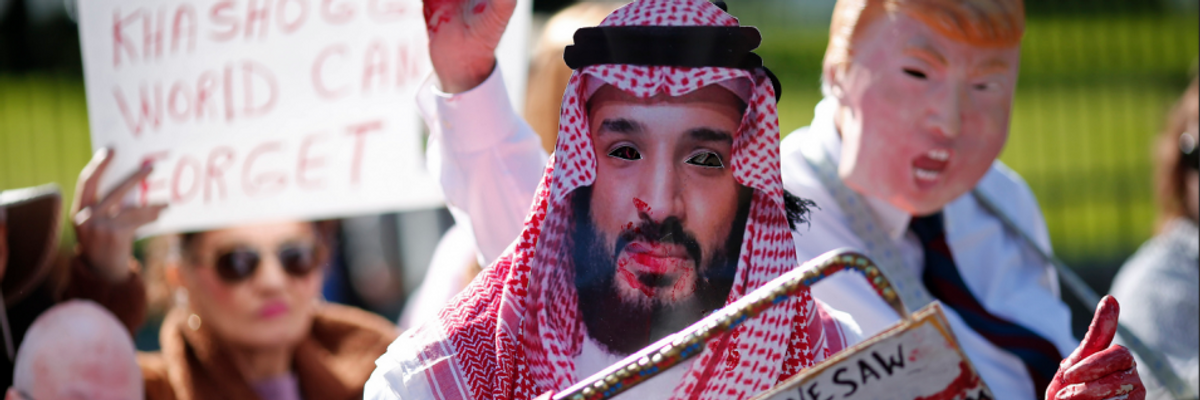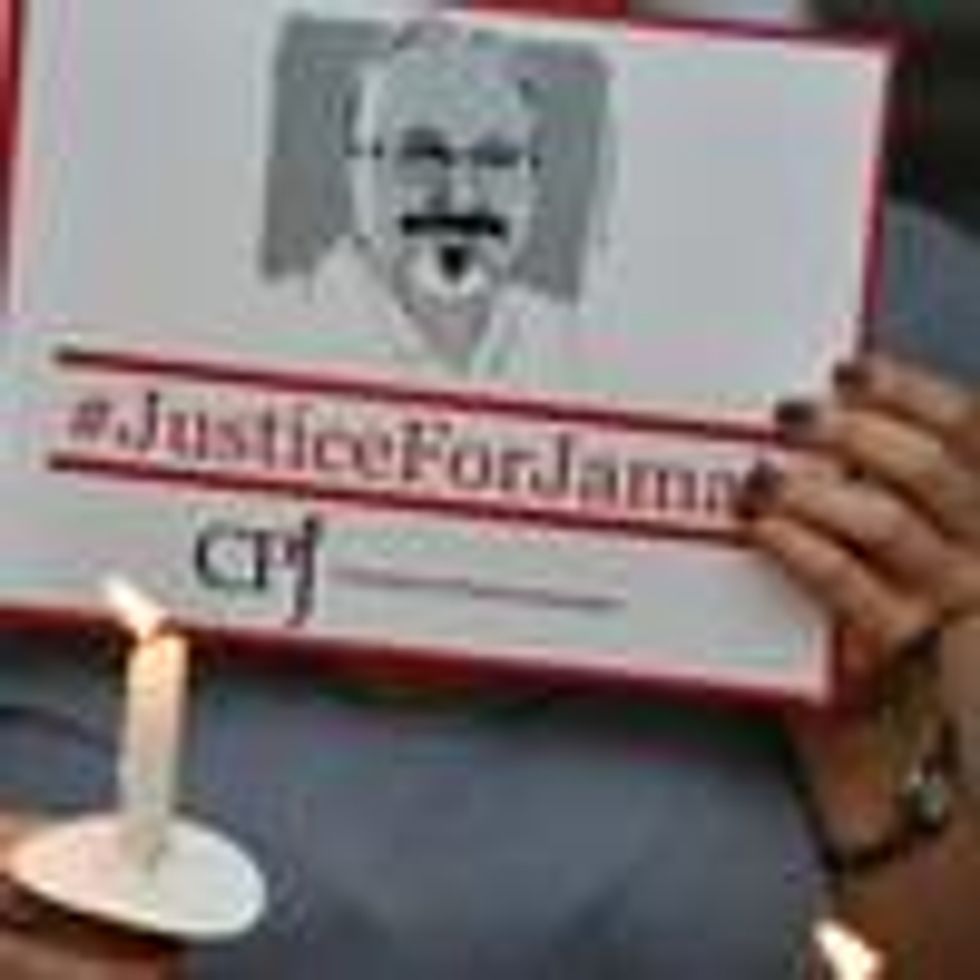Human rights advocates were stunned but not surprised Thursday after a Turkish prosecutor asked a court to move the trial of 26 Saudi men accused of murdering journalist Jamal Khashoggi to Saudi Arabia--whose Crown Prince Mohammed bin Salman is widely believed to have ordered the assassination.
"Turkey will be knowingly and willingly sending the case to a place where it will be covered up."
The Washington Post--where Khashoggi worked as a columnist--reports the unnamed prosecutor's move to halt the trial followed a Saudi transfer request earlier this month, according to Erol Onderoglu, the Turkey representative for the advocacy group Reporters Without Borders.
The defendants--who include a former deputy intelligence chief, a former royal adviser, a member of the royal guard, and intelligence and forensic operatives--are being tried in absentia, as Saudi Arabia refuses to extradite them.
Onderoglu said that if the Turkish Justice Ministry approves the Saudi request, "it will have terrible consequences for the idea of justice."
Sarah Lee Whitson, executive director of the advocacy group Democracy for the Arab World Now (DAWN), tweeted that it is "no surprise to see Turkey abandon justice" as the country seeks to repair ties with the Saudi monarchy, adding that Turkish Prime Minister Recep Tayyip Erdogan's "ballyhoo about the murder was always based on politics, not principle; now it's been sold for a price."
Tarik Beyhan, Amnesty International's Turkey campaign director, said in a statement that "if the prosecutor's request is granted, then instead of prosecuting and shedding light on a murder that was committed on its territory, Turkey will be knowingly and willingly sending the case to a place where it will be covered up."
The development comes as Turkey, which is deeply mired in a currency and debt crisis, seeks to repair relations with Saudi Arabia that were seriously damaged by Khashoggi's assassination.
"Human rights should not be made the subject of political negotiations," Beyhan said. "A murder cannot be covered up to fix relations."
Hatice Cengiz, who was engaged to Khashoggi when he disappeared, told the BBC that she was "heartbroken" by the prosecutor's request.
"No good will come of sending the case to Saudi Arabia," she said. "We all know the authorities there will do nothing. How do we expect the killers to investigate themselves?"
Khashoggi--whose Post columns criticized Saudi Arabia's fundamentalist monarchy and called for more openness in the repressive kingdom--was lured to the Saudi consulate in Istanbul, Turkey on October 2, 2018 under the pretext of obtaining documents for his upcoming wedding. Once inside the building, Turkish officials said he was attacked, suffocated to death, and dismembered with a bone saw. One Turkish investigator said Khashoggi was tortured in front the Saudi consul-general and dismembered while he was still alive.
When Saudi officials confirmed Khashoggi's death inside the Istanbul consulate, they claimed he died in a "fistfight" gone wrong. In 2019, a Saudi court sentenced five people to death and three others to prison terms in connection with Khashoggi's murder, an outcome that Agnes Callamard--then the United Nations special rapporteur on extrajudicial, summary, or arbitrary killing--called a "mockery" of justice.
Related Content
'Antithesis of Justice': Five Saudi Kill Squad Members Sentenced to Death for Khashoggi Murder While Crown Prince Untouched
Jessica Corbett
Mirroring an earlier assessment by Turkish investigators, the U.S. Central Intelligence Agency (CIA) concluded in November 2018 that bin Salman had ordered Khashoggi's murder. Turkish media reported at the time that the CIA had a recording of the "smoking gun phone call" in which bin Salman gave the order "to silence Jamal Khashoggi as soon as possible."
In June 2019, Callamard published a damning 101-page report concluding that the assassination was likely orchestrated by top officials in the Saudi government, including the crown prince. A senior Saudi official reportedly threatened to "take care of" Callamard after she published her report.
Then-U.S. President Donald Trump dismissed the CIA's findings. He smeared Khashoggi--a permanent U.S. resident--as "an enemy of the state," while declaring that "our relationship is with the kingdom of Saudi Arabia."
Trump subsequently vetoed a congressional War Powers resolution that would have ended U.S. complicity in Saudi-led war crimes in Yemen, as well as bipartisan congressional measures to block billions of dollars in arms sales to Saudi Arabia, whose forces along with those of coalition partners including the United Arab Emirates are responsible for the deaths of hundreds of thousands of Yemeni civilians.

